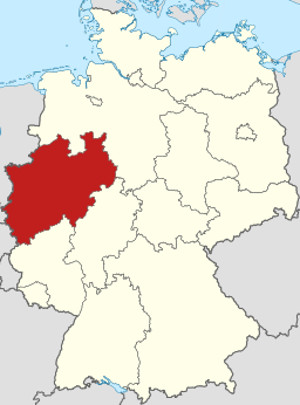
The survival of the new trade deal hammered out in secret between Canada and the European Union is threatened by opposed Green politicians in Germany's most populated state.
The final text of the Comprehensive Economic and Trade Agreement is expected to be published end of this month. Already the leaked draft versions of the text have provoked heavy opposition from non-governmental organizations in Canada and Europe. Most of the criticism has been aimed at how the treaty shifts power from governments to private investors through a number of special rights.
A whole chapter is dedicated to strengthening those investor rights against policies passed by elected governments, basically allowing companies to bypass regular courts and settle conflicts with states in private arbitration courts.
That issue lies at the heart of opposition by the Green party in the German federal state North Rhine-Westphalia, which has taken the decision to vote against CETA, should the final agreement still contain the highly controversial chapter on investor protection.
Local opposition
Does it really matter to the fate of CETA that a minority party in one German state doesn't like what it reads of the leaked draft?
While it's not yet clear, it could matter quite a bit. The federal states in Germany are expected to have a say in the ratification process, and the Greens are in a government coalition with the Social Democrats in Nord Rhine-Westphalia, which contains the cities of Bonn, Cologne and Dusseldorf.
That coalition's decision could set a precedent, as they are not the only political party with doubts about CETA. "There is a lot of disconcertment in other federal states as well, especially inside the Green party and the inside the Social Democrats," said Sven Giegold, who represents the Greens in the European Parliament and in Nord Rhine-Westphalia. "It might get tight for CETA," he told The Tyee.
Up to now, however, no official information has been given on the details of the ratification process for CETA. The German government has repeatedly said that it expects the national parliaments in Europe to vote on the treaty. As CETA touches on the powers and workings of the German federal states, the second chamber of the German Parliament, where the federal states are represented, is expected to have a say as well.
The ratification process can start only after the European-Canadian summit in Ottawa on Sept. 25, where the governments will meet and officially present the final text of the treaty.
Rising criticism
Meanwhile, in the European Parliament in Brussels, critical voices are getting louder. The new leader of the committee on trade, Peter Lange, a Social Democrat, said in a public hearing in July, that he will not approve CETA if it includes the chapter on investor rights. The European Parliament is expected to vote on the treaty in late 2015 or 2016.
It is no secret that the German national government of chancellor Angela Merkel is not a fan of the way CETA enshrines investor rights either. But it appears her government is not willing to stop CETA because of investor rights. "We are quite aware that we are not the only country inside Europe", a source close to government recently told The Tyee.
For German federal states, however, the calculation may different. After all, federal states don't have to worry about their international reputations and balance diplomatic aims against protecting their powers to enact policy.
Nobody can say how the German federal states will vote in the end, but one thing is sure: There will be tough debates. ![]()
Read more: Politics














Tyee Commenting Guidelines
Comments that violate guidelines risk being deleted, and violations may result in a temporary or permanent user ban. Maintain the spirit of good conversation to stay in the discussion.
*Please note The Tyee is not a forum for spreading misinformation about COVID-19, denying its existence or minimizing its risk to public health.
Do:
Do not: